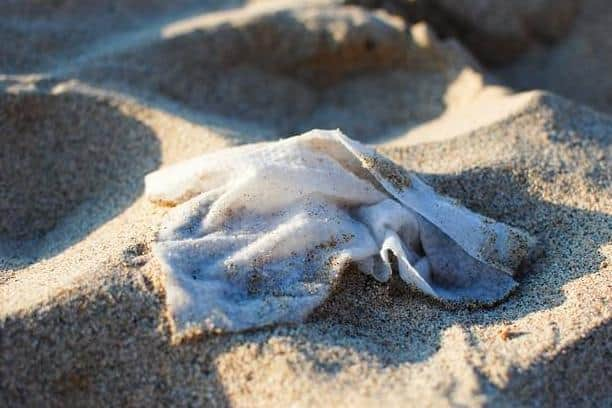Scourge of toilet trash littering Scottish beaches sparks call for wet wipe plastics ban
The quantity of washed-up wet wipes has risen by a staggering 150 per cent in the past year, while the overall amount of rubbish found on coasts north of the border has jumped by 42 per cent. Meanwhile, discarded drinks containers were found on 93 per cent of all the beaches searched.
The horrifying tally has been revealed following the annual Great British Beach Clean, organised by the Marine Conservation Society, which saw thousands of volunteers picking up litter at sites across the UK in September. More than 1,200 people cleared up nearly 8.5 miles of coastline in Scotland, filling 400-odd bags of litter.
Advertisement
Hide AdAdvertisement
Hide AdThe surveys showed plastic and polystyrene pieces were the most common items discovered on Scottish beaches, followed by wet wipes and then confectionery waste such as crisp packets, sweetie wrappers and lollipop sticks. Cotton bud stems, plastic lids and caps, string, and cord and cloth fragments were also in the top ten most frequently found detritus.
Environmental campaigners have expressed horror at the latest findings, which show the quantity of littered wet wipes – which often contain plastic and so do not decompose – has increased almost fourfold in just six years. The disposable wipes are choking beaches, blocking pipes and resulting in sewage spills and pollution at sea, they say, contaminating water for both bathers and marine wildlife.
More than 7,000 wet wipes were recorded at Scottish sites, with the Central Belt worst affected.
The Marine Conservation Society is now calling for the Scottish Government to outlaw plastic in single-use wipes as soon as possible to help protect people and nature. As well as a ban, the charity is also demanding increased monitoring of sewage overflows and action to stop them spilling into rivers and seas.
Catherine Gemmell, Scotland conservation officer at the charity, said: “No one wants to go to a beach and find themselves surrounded by washed-up wet wipes. We have been talking about this for far too long, and our beaches and wildlife are suffering as a result.


“Bold action needs to be taken now. We need the Scottish Government to ban plastic in single-use wet wipes and invest in the sewage network to stop spills from sewer overflows polluting our seas.”
Plastic pollution, including items such as wet wipes, plastic bags and old fishing gear, poses a serious threat to wildlife. It is thought around 100,000 marine mammals and turtles and one million seabirds are killed by plastic pollution annually – mainly through entanglement and ingestion.
Plastic, which is not biodegradable, remains in the environment for hundreds, possibly thousands, of years. Estimates suggest there may be around 5.25 trillion plastic pieces, from big items to tiny chippings, floating in the open ocean today.
Advertisement
Hide AdAdvertisement
Hide AdA single-use plastics ban came into force in Scotland in June, outlawing the sale and manufacture of disposable cutlery, plates, beverage stirrers made of plastic and food containers, cups and lids made of expanded polystyrene. It came following an earlier ban on plastic-stemmed cotton buds.
Comments
Want to join the conversation? Please or to comment on this article.